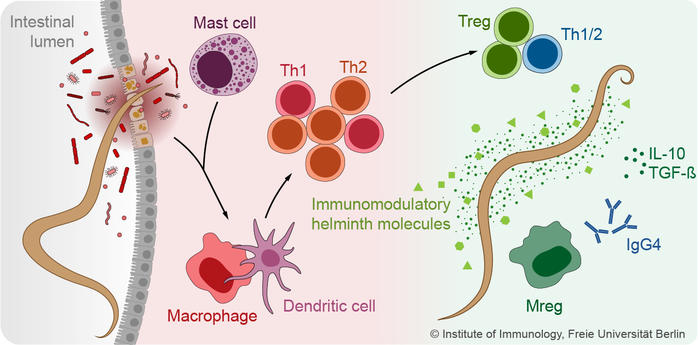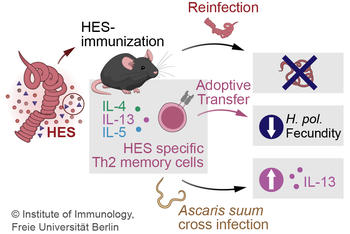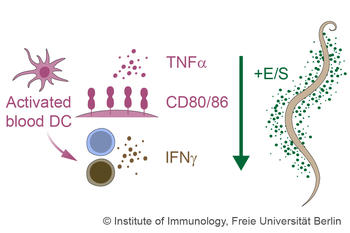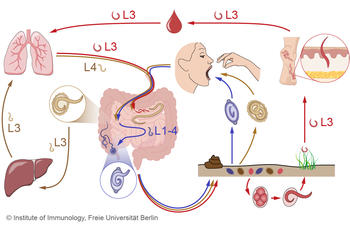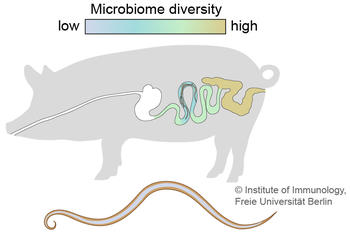School of Veterinary Medicine
Service Navigation
Forschung
The scientific interest of the Institute of Immunology is the interaction between the immune system and infectious agents. Within the group of pathogens, we focus on infections with parasitic worms (Fig. 1).
Our research concentrates on immune mechanisms that enable the parasites to survive chronically in infected hosts. The long-term goal is to understand the chronic survival of parasitic worms in their hosts and to develop intervention strategies against these widespread infectious agents of humans and animals.
The infectious agents we focus on are parasitic worms (helminths). Here, we analyze the immune responses locally, at the site of infection and systemically in response to infections with intestinal roundworms (nematodes). Within the nematodes, we mainly concentrate on the rodent nematode Heligmosomoides polygyrus and the pig roundworm Ascaris suum which is also extremely prevalent in humans. The rodent and the pig infection are widespread, natural intestinal infections, whereby Ascaris spp. is characterized by the fact that this nematode migrates extensively through the body and H. polygyrus only resides in the intestine
Research focus areas of the Institute of Immunology are:
1.1 Protective Immune responses
1.2 Nematode products and influence on infection-independent inflammatory processes
2. Pathogen – Host Interaction
2.1 Th2/1 hybrid cells in nematode-infected patients and mice
2.2. Regulation of antigen-presenting cells in nematode infections
2.3 Tools and T cell responses in pigs
2.4 Parasite - Host interactions in Giardia muris infection
3.1 Co-infection of nematodes with the bacterial pathogen Salmonella
3.2 Toxoplasma-nematode coinfection: redirection of the immune response
4. Nematodes - intestinal microbiota crosstalk
Scientific cooperations:
The institute of Immunology was speaker of the DFG research training group „Parasite Infections: From Experimental Models to Natural Systems“ (GRK 2046) which has been successfully completed. It conducted the projects B4, B5 and C9.
In parallel, we are involved in the DFG priority program “Physics of Parasitism“ (SPP 2332) with the projects P12 und P13.
